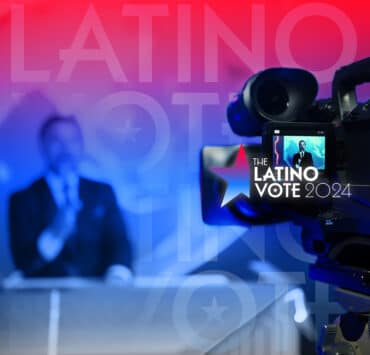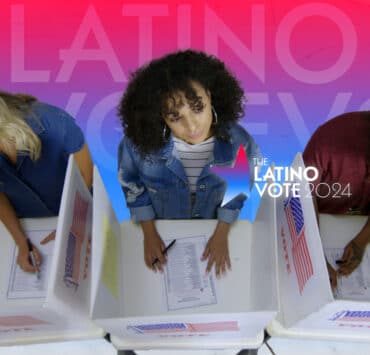There’s massive untapped potential among unregistered Latino voters in the 2024 presidential election. Currently, there are 36.2 million eligible Latino voters in the United States. Annually, about 1.4 million Latino Americans become eligible to vote, and Latino voters are projected to account for 14.7 percent of all eligible voters this November. Additionally, Latino voting power has doubled since the 2000 presidential election, when Latino voters made up 7.4 percent of all eligible US voters.
The Power of the Latino Vote
During the 2020 election, there were nearly ten million Latino voters who were registered to vote but didn’t cast their ballot. Sixteen million Latino voters did partake in the election—a 30.9 percent increase over the 2016 presidential election. This made Latino voters the second-largest group of voters nationwide and the largest ethnic voting bloc for the first time in history.
It’s projected that one out of five Latino voters will vote in their first presidential election in November 2024, according to findings from UnidosUS, a nonprofit, nonpartisan organization that serves as the nation’s largest Hispanic civil rights and advocacy organization. Many of these voters are motivated to exercise their civic duty to vote for those who are ineligible, due to their immigration status. When Latino people vote, they vote for not just for themselves but also their rich and diverse community.
Challenges in Mobilizing Unregistered Latino Voters
Furthermore, Latino voters aren’t a monolith, and the diverse community has varied political beliefs based on their heritage and where they live. For instance, Latino voters in California and Texas tend to be liberal about social issues but conservative when it comes to the military. In Florida, many Latino voters escaped communist dictatorships in Cuba, Venezuela, and Nicaragua—all of which instilled a misguided fear of left-leaning policies. As a result, they tend to vote Republican.
Mobilizing this segment of the population—the 12 million eligible but unregistered Latino voters—has been difficult. The lack of Latino candidates and elected officials makes the community feel underrepresented on the ballot. Voter ID requirements may deter Latino voters, who are less likely to have acceptable forms of identification. What’s more? Many Latino voters come from immigrant families that are suspicious of the government and voting policy, based on past voting-related trauma in their homelands.
Civic Engagement Organizations Empowering Latino Voters
To address these challenges and mobilize unregistered Latino voters, several civic engagement organizations have been actively working to increase voter registration and turnout. Over 1.4 million Latinos have registered to vote, thanks to efforts from Voto Latino. An independent analysis conducted by Tufts University found that Voto Latino was the second-largest voter registration organization in 2020 and the largest focused on registering BIPOC.
In 2020, Voto Latino collected 955,167 voter registration applications—of which 650,455 folks successfully registered to vote and 82 percent turned out to vote. In 2024, Voto Latino is committed motivating the 12 million eligible but unregistered Latino voters to exercise their civic duty in the upcoming presidential election.
Another advocacy group, the League of United Latin American Citizens (LULAC), is gearing up efforts in battleground states to mobilize Latino voters, especially in key states such as Nevada and Arizona. Similarly, UnidosUS, the nation’s largest Latino civil rights and advocacy organization, is on the ground registering Latino voters through the Latino Vote Initiative.
Now more than ever it’s important to engage with the Latino community with real intention—not just as a performance of lip service. It’s never been more paramount to ensure Latino voices are represented in the political process. By focusing on voter registration drives and mobilization campaigns, Latino voters can be empowered and increase their participation in the upcoming election.
The Power of the Latino Vote in 2024
As the Latino population continues to grow and become a larger share of the electorate, mobilizing unregistered Latino voters will be crucial in determining the outcome of the 2024 presidential election. With their diverse backgrounds and perspectives, Latino voters have the potential to shape the political landscape and advocate for issues that matter to their communities.
By addressing the challenges of voter registration and turnout, civic engagement organizations are empowering Latino voters to make their voices heard and exercise their civic duty. The untapped potential of unregistered Latino voters represents a significant opportunity for both political parties to engage with this growing demographic and earn their support.

